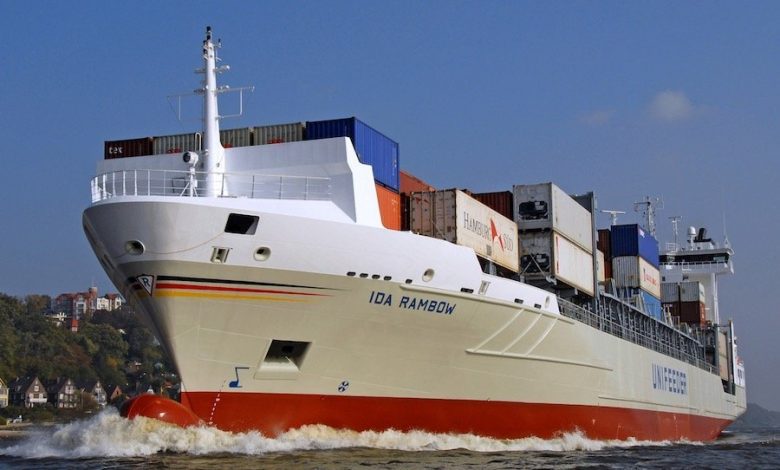
Unifeeder & DP World: The curious marriage on the short seas
Profitable growth in the maritime shipping industry is a precious commodity. The old thinking of getting bigger through mergers or acquisitions prevails. Stronger and larger players try to translate the size into lower costs and lower rates. This holds true for carriers, ports and freight forwarders alike.
Past years were all about stronger carriers swallowing their weaker siblings, ports with strong balance sheets buying weaker ports in need of investments, and cashed up logistics companies buying smaller players to complement their networks. Those acquisitions were always framed as being important to creating better and more efficient supply chains, yet none has proven to deliver on this promise.
The end of 2017 brought something potentially disruptive and game changing. Soren Skou, the CEO of Maersk, announced a major refocusing of the carrier-centric business into a supply chain-centric business combining the carrier, terminal and logistics operations under one roof. While skepticism about success of such vertical integration abounds, there was a lot to like in the announced strategy. Removal of overlaps and inefficiencies promised lower cost business, while continuing to provide the same level of customer services, superb door-to-door integration, and guaranteed transit times.
Other carriers took note of Maersk’s move, but none followed with a great fanfare. There were no acquisitions of terminals or logistics companies made by any of Maersk’s competitors. In successive quarterly earnings calls Maersk didn’t emphasise the importance of that strategy, nor examples of real game change for the business or their customers. It looked like the search for the holy grail of integrated supply chains orchestrated by the maritime giants was put in a holding pattern.
Just a few days ago, this situation changed and not thanks to another carrier. The salvo has come from a port operator. Surprising industry watchers, DP World, one of the world’s largest port operators, has announced the acquisition of Unifeeder Group, a Danish feeder and short seas shipping company. The key justification for this acquisition must have been a plan to capture a larger share of the margins in the end-to-end supply chain execution.
For a long time I advocated that ports take more aggressive actions in expanding services aimed at improving supply chain execution outside of ports’ gates. Except, I argued that ports should expand by building new disruptive services on the basis of the data they have about the shippers, the carriers and the cargo. The margins on such digital services would be similar to the margins seen in gateway port operations. It has never crossed my mind that a port would instead expand by acquiring metal. A shipping company would give an arm and a leg to generate margins of the port operators. So what is a highly profitable company doing acquiring a much less profitable company in a very different industry? Let’s walk through various aspects of this deal.
Unifeeder calls on number of ports mostly in northern Europe and is an undisputed leader in feeder and short sea services in the Baltic Sea countries. It generates respectable, but not stunning, profit for this type of business. It has not been known for ambitions to vertically integrate all components of the maritime supply chain. The nomination of Nils Smedegaard Andersen as the chairman of Unifeeder’s board could have changed some minds. Andersen, an alumnus of AP Moller Maersk, could have dreamt of replicating Maersk’s strategy, but in this situation it was the terminal operator that made the acquisition of a carrier, not the other way around.
By acquiring Unifeeder, DP World gains control of the calls made by Unifeeder vessels on DP World’s European terminals, but in the process loses an ability to extract higher rates out of the carrier.
The business of feedering is tough. Mainline contracts are short term, the rates are not generous, margins are thin, and optimising yield is notoriously difficult. The situation in short sea transportation, the smaller market segment of Unifeeder, is better, but not by much. There are margin upsides from optimising yields by picking up better routings and better allocating capacity to demand, just like the big guys do. Yield optimisation requires aggressive negotiations on port fees and terminal handling charges. It is incredibly hard to see any significant profit and revenue upside for DP World.
Financial aspects of this deal are even more tricky. The price tag of EUR660m (US$764m), about 3xEBIT, is in line with the rule of thumb 2.5-5 times EBIT guide for the selling price of a healthy business operating in a healthy industry. But one would be really challenged calling shipping a healthy industry. Highly commoditised, margin poor and whiplashed by low customer loyalty, the industry needs all the help it can get. On this deal, it would have made more sense for DP World to pay 1-1.5x EBIT, or somewhere in the range of EUR300m.
Someone in this deal is counting their lucky stars. Time will show what DP World had on their minds when making this decision. This could act as a growth strategy template for other terminal/port operating groups. Or it could easily turn into one of those MBA horror business stories of misguided expansions.